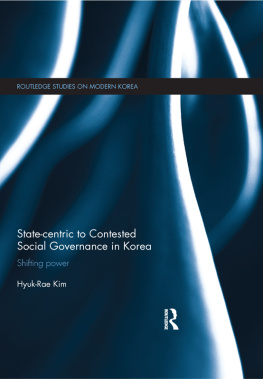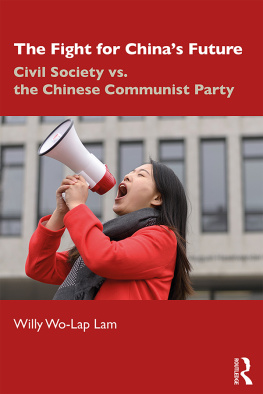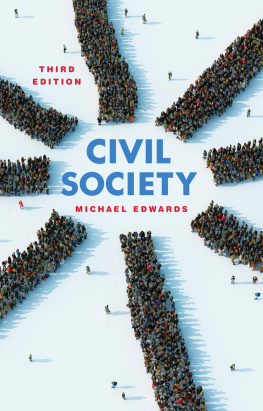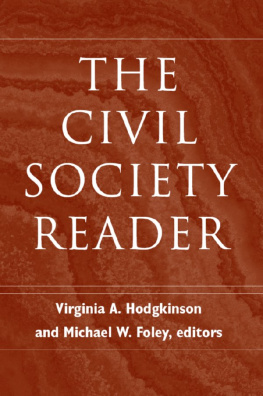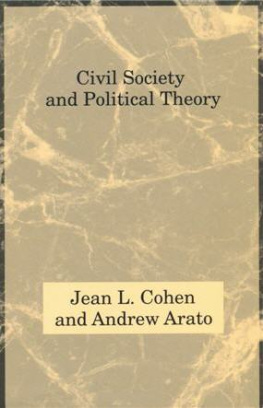NEWS AND CIVIL SOCIETY
News and Civil Society
The Contested Space of Civil Society in UK Media
JEN BIRKS
University of Nottingham, UK
First published 2014 by Ashgate Publishing
Published 2016 by Routledge
2 Park Square, Milton Park, Abingdon, Oxon OX14 4RN
711 Third Avenue, New York, NY 10017, USA
Routledge is an imprint of the Taylor & Francis Group, an informa business
Copyright Jen Birks 2014
Jen Birks has asserted her right under the Copyright, Designs and Patents Act, 1988, to be identified as the author of this work.
All rights reserved. No part of this book may be reprinted or reproduced or utilised in any form or by any electronic, mechanical, or other means, now known or hereafter invented, including photocopying and recording, or in any information storage or retrieval system, without permission in writing from the publishers.
Notice:
Product or corporate names may be trademarks or registered trademarks, and are used only for identification and explanation without intent to infringe.
British Library Cataloguing in Publication Data
A catalogue record for this book is available from the British Library
The Library of Congress has cataloged the printed edition as follows:
Birks, Jen.
News and civil society : the contested space of civil society in UK media / by Jen Birks.
pages cm
Includes bibliographical references and index.
ISBN 978-1-4094-3615-7 (hardback)ISBN 978-1-3155-9823-9 (ebook)
ISBN 978-1-3170-8763-2 (epub)
1. Civil societyGreat Britain. 2. Mass mediaGreat Britain. 3. Law enforcement
Great Britain. I. Title.
JC337.B57 2013
300.941dc23
2013011975
ISBN 9781409436157 (hbk)
ISBN 9781315598239 (ebk-PDF)
ISBN 9781317087632 (ebk-ePUB)
Contents
List of Tables
Acknowledgments
I am indebted to the Leverhulme Trust for their generous funding of this project, and to colleagues at the University of Stirling for their support throughout not least to Neil Blain for sage advice, unstinting encouragement, and coffee meetings that always turn into boozy lunches. I am also grateful to my editor, Neil Jordan, for invaluable guidance and patience with missed deadlines.
There are very many people to whom I owe thanks, and apologies to those not mentioned here. For erudite feedback on work in progress and stimulating debate at various conferences, I must thank Michael Higgins, Stuart Price, Mick Temple, Heather Savigny, Alec Charles, and John Downey. My friends in Glasgow got me through some very tough times over the course of writing this book, and I cant thank them enough for their kindness and fabulous company, especially Natasha Augustus, Sarah Neely, Kirsteen Paton, Alanna Burns, Campbell Mitchell, Craig Whitehill, Martin Cloonan, and David Archibald. In Nottingham, special thanks go to Eva Giraud for keeping me sane, and by no means least, Seb Roshlau for keeping me going through the final stages with the very finest kedgeree and pancakes. My deepest thanks of course go to my parents, Gill and Alan Birks, and my siblings Kate and Ste, whose support I have always been able to rely on.
Chapter 1
Introduction
Civil society is a term that has enjoyed periodic renaissance, often at times of significant social change. John Keane published his key defining text (in two volumes) in 1988, on the cusp of the revolutions in Eastern Europe that precipitated the fall of Communism. Mary Kaldor wrote her examination of Global Civil Society as an answer to war (2003) in the aftermath of 9/11. Following the events of Tahir Square and the Arab Spring, the Indignados of the Spanish 15M movement, and the global Occupy movement, and also the anti-austerity riots in Greece and elsewhere, theorists such as Hardt and Negri (2011), Badiou (2012), and Castells (2012) have already put forward their analyses. But Keane (1998) asserted that his interest in the topic was motivated by a concern for how the concept could be useful in mature democracies, not only emerging ones.
And so to less dramatic beginnings. During campaigning for the 2010 UK general election, the Liberal Democrats included civil liberties in their manifesto, whilst the Conservative Party launched their Big Society idea. The two seemed to reflect different understandings of civil society the first about the freedom to dissent and the power to hold politicians to account, and the second about the responsibility of communities for their own welfare. After the coalition was formed between the two parties, the Liberal Democrat leader tried to argue that there was no ideological difference:
What Im discovering Im sure the Prime Minister will feel the same is that weve been using different words for a long time and actually mean the same thing. Liberalism: Big Society. Empowerment: Responsibility. It means the same thing. (Nick Clegg, speaking at Big Society launch, 18 May 2010)
Together the two aspects recalled Blairs rights and responsibilities discourse, inspired by the new or responsive communitarianism of Amitai Eztioni, which seeks to instil civic virtue through social expectation rather than democratic agreement. In any case, the public response to austerity measures that were in neither manifesto has not been to pitch in to the space vacated by the retreating state, by volunteering to keep the library open or running the local school, but to strike, march, protest and occupy.
Meanwhile, among the few concrete examples of autonomous organisations providing public services, the Catholic Church has faced legal challenges to its public exercise of religious values. Equality legislation that required adoption agencies to consider same-sex couples as prospective parents resulted in the closure of Catholic agencies that could not countenance going against the teaching of the church. The precise definition of tolerance as the central value of civil society has thus been contested over the ground of identity politics, and especially the competing rights claims of religious and LGBT groups. This prompts questions about how we distinguish between public and private, and how we understand the role of values in democracy in general and contested politics in particular, including the notion that political debate is in itself uncivil due to this often fierce contestation.
Academic theorising offers a range of definitions, normative models, and determinations of legitimacy, some of which filter through to some extent into public consciousness, especially through the news media. So, of interest here is how the models of civil society promoted by political leaders and other figures of authority are reproduced, debated, and challenged, with particular attention to the sources of dissent from civil society itself.
Research questions
This book is, centrally, an enquiry into the popular definition of civil society in news reporting, and in particular how legitimacy is determined. This includes the various boundaries of inclusion and exclusion (of associations and activities) between the realm of civil society and the business of the political system and the market, and the paths of influence between them. It also encompasses the distinctions drawn between public and private, and how civil society straddles the two realms; for instance to bring privately experienced problems to public attention, to argue for private interests as related to the public interest, to argue that the private is political.



